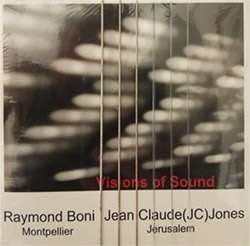
Twelve studio improvisations between Kadima-label leader JC Jones playing on a lap-steel plugged in Spanish guitar and French guitarist & improviser Raymond Boni, also performing on harmonica and electronics, where Jones, leveraging his history of work as a double bassist, often takes on the role of percussive/rhythmic foundation against Boni's incredible explorations.
In Stock
Quantity in Basket: None
Log In to use our Wish List
Shipping Weight: 3.00 units
Sample The Album:
Jean Claude Jones-lap style plugged in Spanish guitar
Raymond Boni-guitar, electronics, harmonica
Click an artist name above to see in-stock items for that artist.
Label: Kadima
Catalog ID: KCR 49
Squidco Product Code: 30719
Format: CD
Condition: New
Released: 2018
Country: Israel
Packaging: Cardboard sleeve, sealed
Recorded at Kadima studio, in Jerusalem, Israel, between 2016 and 2018, by JC Jones.
"Although Visions of Sound may appear to be a standard dual guitar session, only one player, Montpellier-based Raymond Boni, plays the regular guitar, as well as electronics and harmonica. Meanwhile Boni, a veteran French string sound explorer, who has worked with fellow experimenters such as Joëlle Léandre and André Jaume, is hooked up here with Jerusalem's Jean Claude (JC) Jones, who percussively plays a lap-style, plugged-in, Spanish guitar, A champion of free music in Israel for many years, Jones has played with the likes of Léandre and John Zorn.
[...]
Jones' lap-style guitar takes the place of percussion on Visions of Sound. And the keen rhythmic sense displayed is no surprise from a musician who was a double bass player for most of his life. At the same time the percussion rebounds he creates on a track like "Duo 2" provide the backing for the chiming and bottleneck-guitar-like distortions and contribute to circular tone elaborations. The jagged, slack key and in-between tone discursions Boni adds to his exposition provide perfect counterpoint to Jones' strategies. Although sometimes both drop the rhythmic role and try to outdo one another as on "Duo 6" with off-centre, almost out-of-tune string duets. Boni's electronics rarely interfere with the narratives, while his harmonica playing is primitive enough to provide paced wah-wah echoes on "Duo 3" and "Duo 8". However on the second tune, the mouth-organ's whistles and reedy blowing serves as high-pitched accompaniment for Jones' perhaps mallet helped smacks and rebounds that play up the percussive properties of his lap-style arrangement. While the swift and sharp string picking on "Duo 9" could be heard as a classic dual guitar showcase one would expect from the Delmore Brothers or Muddy Waters-Jimmy Rogers, by the last few tracks the two prove their exploratory bone fides by mixing trebly distortions and unexplained effects with straight-ahead strumming and slurred fingering. Knife-style vibrations, high-pitched cries and contorted flanges are prominent on the concluding "Duo 12" with dual output tapering into echoing tones by the finale. [...]"-Ken Waxman, JazzWord
Get additional information at Jazzword
Artist Biographies
• Show Bio for Jean Claude Jones "Jean Claude Jones was born in Sfax, Tunisia and moved to France as a young child. As a teen, he taught himself simultaneously to play lead and bass guitar. At the age of 17 he began working in professional pop and jazz bands. In 1978 he moved to the US to pursue formal music studies, graduating from the Berklee College of Music in Boston, where he majored in jazz guitar. He continued his studies at the Music Institute of Technology in Los Angeles. In 1983 he emigrated to Israel, where he became a key player on the newly developing jazz scene. Several years later he made a definitive switch from guitar to double bass, and became involved in free improvised music. In time, he added electronics and computer-manipulated sounds to his musical arsenal. In 2016 because of a serious illness he returned the guitar as his main instrument.The driving force behind his work is "finding my space." JC Jones is an esteemed music educator, and served as chair of the Jazz Department at the Jerusalem Academy of Music and Dance between 1996 and 2000. He has performed and recorded with many leading international and Israeli musicians, dancers, poets, and vocal artists, including Stan Getz, Red Rodney, and Dave Liebman. Since the 1990s he has appeared with John Zorn, Anthony Coleman, Ned Rothenberg, Joey Baron, Marc Ribot, Ikue Mori, Mike Patton, Damon Smith, Joelle Leandre, Slava Ganelin, Steve Horenstein, Albert Beger, Arkady Gotesman, Avishai Cohen, Ariel Shibolet, Harold Rubin, Victoria Hanna, Josef Sprinzak, Amos Hetz, Anat Shamgar , Felix Ruckert, Dieter Hautkamp, Julyen Hamilton, Mark Dresser, Barre Phillips, Bert Turetzky, Irina Kalina Goudeva. In 2004 he founded his label Kadima Collective Recordings. Some of JC's major projects include Deep Tones for Peace 2009 telematic performances, the Kadima Triptych Series (cds/dvds/texts featuring double-bass masters), Myelination (the myelin chemical sounds and improvised music), and The Temperamental Duo, a collaborative work on Lydian + Explorations with composer/reeds player Steve Horenstein. Since 2016 he has been working with lap-style prepared and sometimes prepared spanish guitar, in multiple collaborations and recordings with several eminent musicians. Works includes Wild Guitar Musings 2016 solo guitar, Keep on Dancing, duos recordings with percussionists Haim Peskoff, Oren Fried Denis Fournier, and JC on guitar, Sick Puppies In Love duos with vocalist Anat Pick 2016, Drones 2017, La Sprezzatura Ensemble 2018, Give it your all - Wild Guitar Musings 2018." ^ Hide Bio for Jean Claude Jones • Show Bio for Raymond Boni "Influenced by musicians as diverse as Django Reinhardt and Cecil Taylor, French guitarist Raymond Boni has developed a unique and dazzling style derived from gypsy technique. After studying the piano and switching to the harmonica, Raymond Boni learned how to play the guitar with Gypsies living near his home. This empirical experience would leave a permanent imprint on Boni's approach to the instrument. In the early '60s, still a teenager, he decided to go study in London. Surrounded by a very diverse and creative musical environment, Boni decided to get serious about the guitar and to break from the musical framework of musical academia. Back in France, he settled in Paris where he was among the first French musicians to embrace free jazz and free improvisation. His first major collaboration was a long-lived duo he formed with guitarist Gérard Marais in 1973. In 1976, he joined the André Jaume/Gérard Siracusa duo and worked with saxophonist Claude Bernard. The latter was also responsible for allowing Boni to fulfill his ambition to compose for and perform with dancers. In 1978, he started a long relationship with Joe McPhee, which produced some stellar albums such as Old Eyes & Mysteries and Oleo & a Future Retrospective and a tour in the U.S. and Canada (1985). In 1981, Boni moved to Marseille where he was not able to perform as often as in Paris. As an alternative, he focused on writing and diversified his projects. In 1982, he met dancer and choreographer Geneviève Sorin and started to compose music for her company. Raymond Boni also continued to foster some old partnerships while developing new ones with accomplished artists such as Les Mistrals with British improvisers Terry Day and Max Eastley. In the '90s, the guitarist worked extensively with musicians from younger generations, most notably Claude Tchamitchian and Eric Echampard. Boni also multiplied collaborations with artists having a background other than jazz but a bent for improvisation. Another worthy project is Boni's Family with Sorin and son Bastien Boni, which honors his Gypsy legacy and capitalizes on his talented household. In 2001, Boni reunited with McPhee for an album, Voices & Dreams, and several concerts in the U.S. and Europe." ^ Hide Bio for Raymond Boni
11/18/2024
Have a better biography or biography source? Please Contact Us so that we can update this biography.
11/18/2024
Have a better biography or biography source? Please Contact Us so that we can update this biography.
Track Listing:
1. 1 2:57
2. 2 4:32
3. 3 4:54
4. 4 3:33
5. 5 3:08
6. 6 3:57
7. 7 3:51
8. 8 4:05
9. 9 2:25
10. 10 3:05
11. 11 3:03
12. 12 4:10
Improvised Music
Free Improvisation
Electro-Acoustic
Electro-Acoustic Improv
Guitarists, &c.
Electronic Forms
Duo Recordings
Search for other titles on the label:
Kadima.



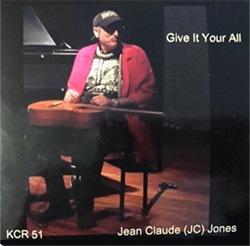
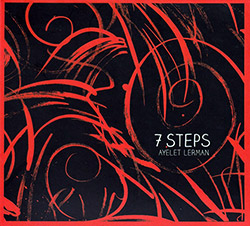
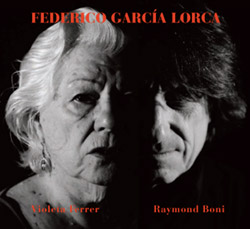
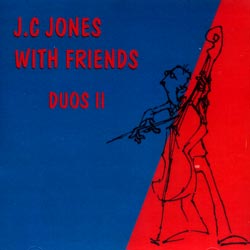
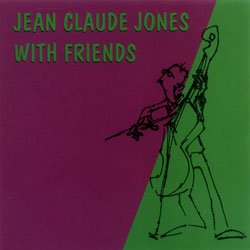
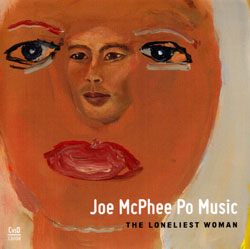
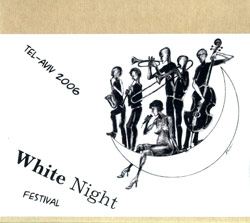
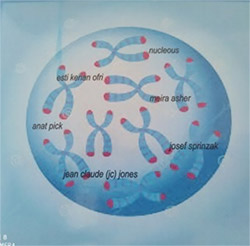
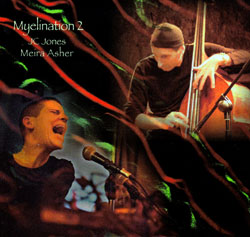
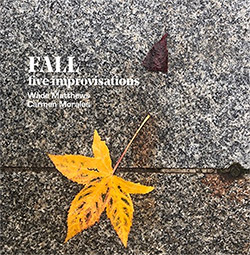


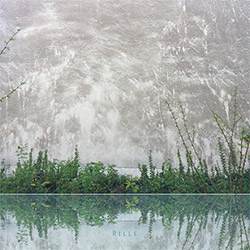
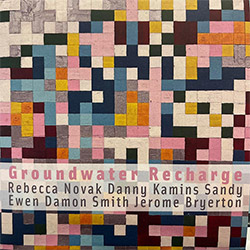
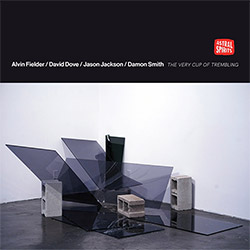
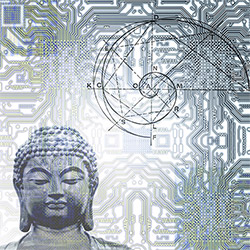
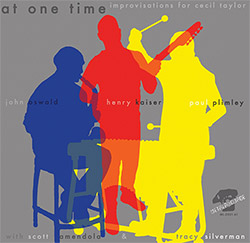
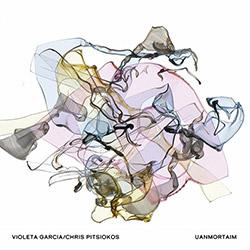
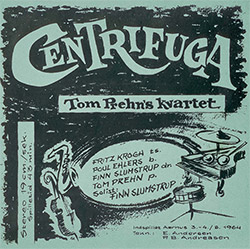
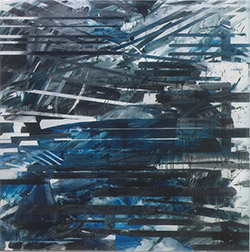


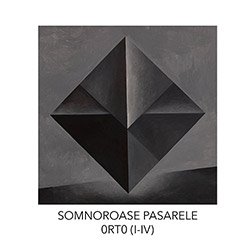














![Barker / Parker / Irabagon: Bakunawa [VINYL]](https://www.teuthida.com/productImages/misc4/35533.jpg)
![Blaser, Samuel / Marc Ducret / Peter Bruun: Dark Was The Night, Cold Was The Ground [VINYL 10-inch]](https://www.teuthida.com/productImages/misc4/35492.jpg)










![Warren, Kenny (Warren / Hoffman / Ellman): Sweet World [VINYL]](https://www.teuthida.com/productImages/misc4/35451.jpg)


![Blake, Ran / Dave Knife Fabris: Live Amsterdam 2006, First Visit [CD + POSTCARDS]](https://www.teuthida.com/productImages/misc4/35275.jpg)
![Sanna, Claudio: Compositori Sardi Contemporanei II [2 CDs]](https://www.teuthida.com/productImages/misc4/35317.jpg)












![Nevai, Nandor: <<The PRICE of FRONTIER>> Book 1: FULK [BOOK + 4 CDs]](https://www.teuthida.com/productImages/misc4/35464.jpg)
![Nevai, Nandor: <<The PRICE of FRONTIER>> Book 2: MARTIAL [BOOK + 4 CDs]](https://www.teuthida.com/productImages/misc4/35465.jpg)
![Nevai, Nandor: <<The PRICE of FRONTIER>> Book 3: JASSOM [BOOK + 4 CDs]](https://www.teuthida.com/productImages/misc4/35466.jpg)
![Nevai, Nandor: <<The PRICE of FRONTIER>> Book 4: HARD-WON [BOOK + 4 CDs]](https://www.teuthida.com/productImages/misc4/35467.jpg)






![DNS: Taking Big Bites Of The Khandas Three Cafes Deep [2 CDs]](https://www.teuthida.com/productImages/misc4/35334.jpg)




![Cleaver, Gerald: The Process [VINYL]](https://www.teuthida.com/productImages/misc4/34966.jpg)




![Alva Noto: HYbr:ID II [VINYL 2 LPs]](https://www.teuthida.com/productImages/misc4/35201.jpg)

![Baron, Derek / Luke Martin: Distinct and Concealed [CASSETTE + DOWNLOAD]](https://www.teuthida.com/productImages/misc4/35079.jpg)

![Lyle, Erica Dawn : Colonial Motels [CASSETTE + DOWNLOAD]](https://www.teuthida.com/productImages/misc4/35080.jpg)







![Alva Noto: HYbr:ID III [VINYL 2 LPs]](https://www.teuthida.com/productImages/misc4/35011.jpg)
![Kubisch, Christina / Trondheim Voices: Stromsanger 2022 For Six Voices And Electromagnetic Waves [VINYL]](https://www.teuthida.com/productImages/misc4/34628.jpg)








![Zurria, Manuel: Fame di Vento [3 CDs]](https://www.teuthida.com/productImages/misc4/35167.jpg)

![Granberg, Magnus / Nattens Inbrott / Skogen: Holde Traume, Kehret Wieder! [2 CDs]](https://www.teuthida.com/productImages/misc4/35038.jpg)
![Frey, Jurg: Outermost Melodie [2 CDs]](https://www.teuthida.com/productImages/misc4/35039.jpg)

![Pavone, Jessica: Reverse Bloom [VINYL]](https://www.teuthida.com/productImages/misc4/34895.jpg)




![Modney (Modney / Wooley / Gentile / Roberts / Pluta / Symthe / ...): Ascending Primes [2 CDs]](https://www.teuthida.com/productImages/misc4/34852.jpg)








![Elephant9 with Terje Rypdal: Catching Fire [VINYL 2 LPs]](https://www.teuthida.com/productImages/misc4/35355.jpg)
![Deerlady (Obomsawin, Mali / Magdalena Abrego): Greatest Hits [VINYL]](https://www.teuthida.com/productImages/misc4/34876.jpg)




![Haino, Keiji: Black Blues [2 CDs]](https://www.teuthida.com/productImages/misc4/35109.jpg)



![Surplus 1980: Illusion of Consistency [CD]](https://www.teuthida.com/productImages/misc4/35069.jpg)
![Staiano, Moe: Away Towards the Light [VINYL + DOWNLOAD]](https://www.teuthida.com/productImages/misc4/35037.jpg)




![Caveira (Gomes / Sousa / Abras / Ferrandini): Ficar Vivo [VINYL]](https://www.teuthida.com/productImages/misc4/34643.jpg)
![Gregg, J. J. / David Van Auken: Lunar Prairie [CD w/ DOWNLOAD]](https://www.teuthida.com/productImages/misc4/34611.jpg)

![Coultrain: Mundus [VINYL]](https://www.teuthida.com/productImages/misc4/32439.jpg)
![Mattin: Songbook #6 [VINYL]](https://www.teuthida.com/productImages/misc4/27317.jpg)
![Punkappella: Wake Up [7-inch VINYL]](https://www.teuthida.com/productImages/misc4/17519.jpg)
![Residents, The: WARNING: UNiNC.: Live And Experimental Recordings 1971-1972 [VINYL 2 LPs]](https://www.teuthida.com/productImages/misc4/31521.jpg)
![Coultrain: Phantasmagoria [VINYL]](https://www.teuthida.com/productImages/misc4/30142.jpg)
![Lennon, Sean Ono: Asterisms [VINYL]](https://www.teuthida.com/productImages/misc4/34517.jpg)

![Rotem Geffen: The Night Is The Night [VINYL]](https://www.teuthida.com/productImages/misc4/34631.jpg)
![Coley, Byron: Dating Tips for Touring Bands [VINYL]](https://www.teuthida.com/productImages/misc4/17906.jpg)

![Lost Kisses: My Life is Sad & Funny [DVD]](https://www.teuthida.com/productImages/misc4/lostKissesDVD.jpg)